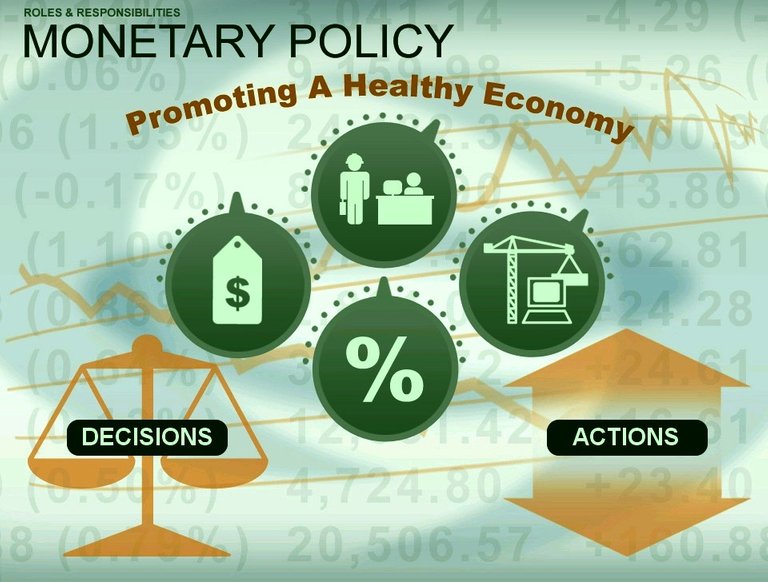Is monetary policy and credit policy the same?
Monetary policy and credit policy may seem to be the same. Credit policy is part of monetary policy. However, not all monetary policy can be classified as credit policy. The aim of the central bank's credit policy is to control the loan of commercial banks in line with the economic situation of the country. The supply of money is regulated by monetary policy. However, not all money supply is debt, demand is one of the components of strong money supply besides deposits. Moreover, although monetary policy is directly dependent on the supply of money, its indirect effect on the demand for money cannot be denied. So monetary policy is not just a credit policy, the scope of monetary policy is bigger than credit policy.
Instruments of Monetary Policy
To implementing the objectives of the monetary policy, the monetary authorities of the country take the help of following Instruments.
The measures adopted are:
1. Control of money circulation: The main goal of monetary policy is to control the supply of money. The central bank controls currency supply, depending on the volume of trade and the nature of the transactions of the issued currencies.
2. Debt Control: The credit creation process of a commercial bank significantly affects the money supply. Therefore, the steps taken in debt control can be considered as instruments of monetary policy. There are several measures to control debt.
A. Bank rate change,
B. Open market policy and
C. Changes in the minimum reserve ratio.
A. Bank Rate Change: Bank Rate refers to an interest rate charged by the central bank on the basis of which a commercial bank can borrow from the central bank. If the bank rate increased then the amount of loan given by commercial bank is reduced. That is, the supply of money then decreases. The money supply also increases when the central bank reduces the bank rate and allows commercial banks to extend loans. Therefore, bank rate is considered as one of the instruments of monetary policy.
B. Open market policy: When the central bank buys bonds in the open market, the commercial banks have more money in their hands and therefore the loan amount also increases. On the other hand, the central bank can withdraw money from commercial banks by selling bonds. Then the lending capacity of commercial banks decreases. Thus, the central bank controls the amount of loans of commercial banks and the amount of money supply through open market policy.
C. Changes in the minimum reserve ratio: The minimum deposit ratio of a commercial bank may be changed by the central bank. The central bank raises the minimum reserve ratio to reduce the country's debt or money supply. Again, the central bank lowers the minimum reserve ratio if it wants to disburse funds or disburse loans. In addition to the quantitative debt control system mentioned above, the central bank can take a number of selected measures or debt control methods.

This is completely untrue. The Central Bank has no control over this area. It wants people to think it does but it does not.
The Central Bank is completely powerless to make banks lend or people borrow. It also has no control over people paying back debts or when defaults take place.
Posted Using LeoFinance Beta
Yes, You talked about real facts! A central bank is assign to monitor and control the banking sector and responsible to manages the currency and monetary policy of a country. Central banks in most nations are still limited control over the interest rates, the exchange rate, money supply and debt control in an open Economy.
Dear @team07, we need your help!
The Hivebuzz proposal already got an important support from the community and is close to be funded. However, it misses a few votes to get past the return proposal and your could make the difference!
May we ask you to support it so our team can continue its work this year?
You can do it on Peakd, ecency, or using HiveSigner.
https://peakd.com/me/proposals/199
Thank you!